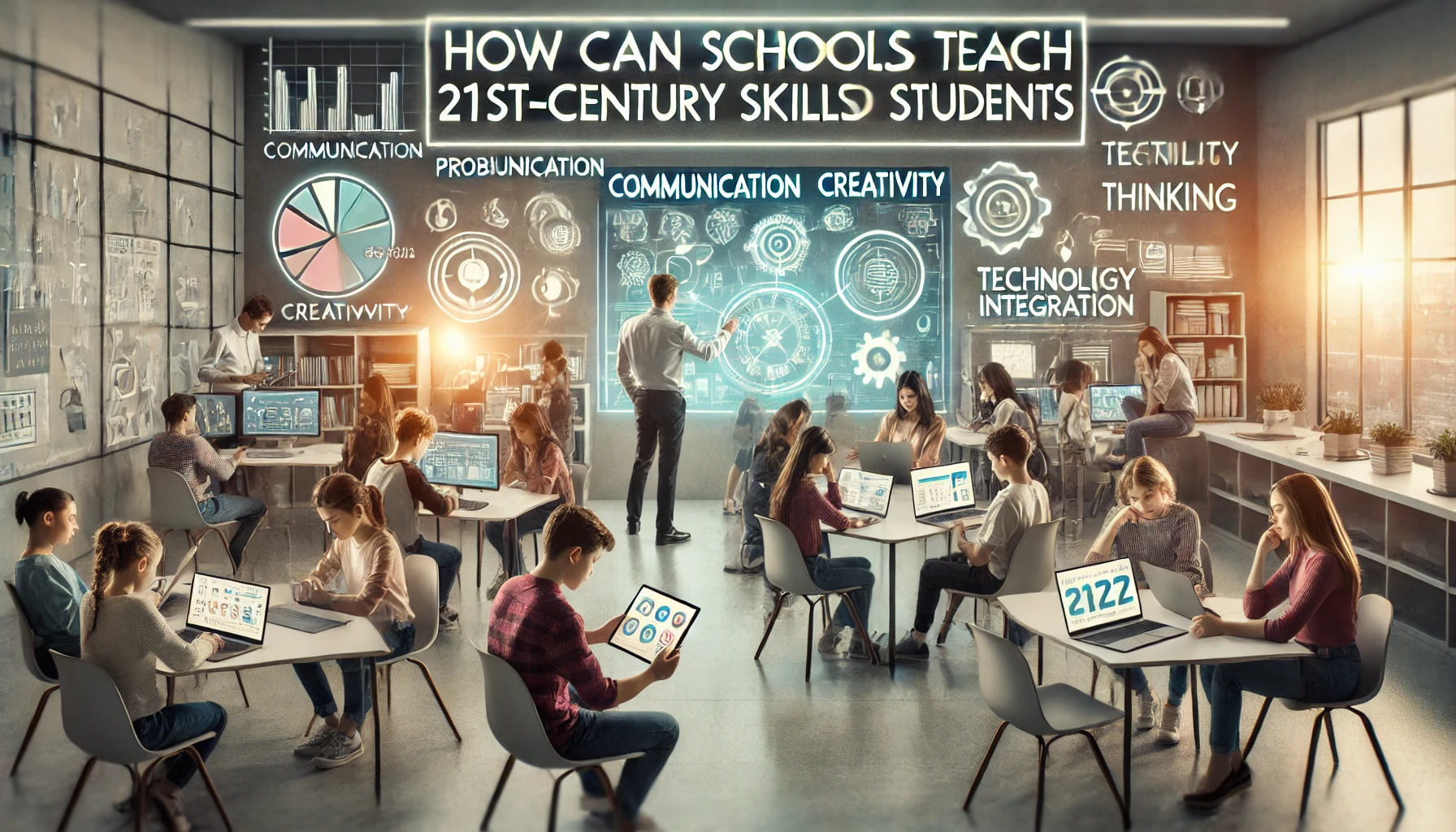
In today’s rapidly changing world, the importance of equipping students with 21st-century skills cannot be overstated. These skills encompass critical thinking, creativity, collaboration, and communication—essential abilities that prepare students for the complexities of modern life and work. Schools, especially the top CBSE schools in Ludhiana, play a pivotal role in fostering these skills. In this blog, we will explore effective strategies that schools can implement to teach 21st-century skills and enhance student learning outcomes.
21st-century skills are crucial for students to thrive in a global economy. According to the Partnership for 21st Century Skills, these skills can be grouped into three broad categories:
By integrating these skills into their curricula, the best schools in Ludhiana, Punjab, can prepare students to succeed in an increasingly interconnected world.
One effective approach to teaching 21st-century skills is through project-based learning. PBL encourages students to engage in real-world projects that require critical thinking, collaboration, and creativity. For instance, a project on environmental conservation could involve researching local issues, developing solutions, and presenting their findings to the community. This hands-on approach not only deepens understanding but also fosters essential skills that students will use throughout their lives.
Technology is a powerful tool for teaching 21st-century skills. Schools should integrate digital tools that enhance learning experiences. For example, using online collaboration platforms allows students to work together on projects, regardless of their location. Digital storytelling tools enable students to express their creativity while honing their communication skills. By embracing technology, top schools in Ludhiana CBSE can prepare students for a digital future.
Collaboration is a critical component of 21st-century skills. Schools can foster a collaborative environment by organizing group activities, peer-to-peer learning, and team projects. These experiences not only help students develop interpersonal skills but also teach them the importance of working together to achieve common goals. Collaborative learning is especially beneficial in schools, as it mirrors real-world scenarios where teamwork is often essential.
To equip students with the ability to analyze information and solve complex problems, educators should integrate critical thinking exercises into the curriculum. Schools can implement case studies, debates, and simulations that challenge students to think critically and come up with innovative solutions. For instance, analyzing historical events or current issues encourages students to assess various perspectives and develop well-informed opinions.
Creativity is vital for success in the 21st century. Schools should create an environment that nurtures innovative thinking by allowing students to explore their interests and express themselves. Incorporating arts, design thinking, and open-ended projects into the curriculum can foster creativity. Schools can also organize competitions and workshops that encourage students to think outside the box and develop their unique ideas.
Effective communication is essential for success in both personal and professional settings. Schools should provide opportunities for students to practice their communication skills through presentations, debates, and group discussions. By encouraging students to articulate their thoughts and ideas, schools can help them become confident communicators. Furthermore, engaging parents and the community in school activities can also enhance students’ communication skills.
Connecting classroom learning to real-world applications is crucial for helping students understand the relevance of their education. Schools can organize field trips, internships, and community service projects that expose students to real-life situations and challenges. These experiences not only enhance learning but also help students develop a sense of social responsibility and empathy.
Teaching 21st-century skills is essential for preparing students for the challenges of the modern world. By implementing strategies such as project-based learning, integrating technology, encouraging collaboration, and fostering creativity, schools can effectively equip students with the skills they need to succeed. Parents seeking the top 10 best schools in Ludhiana for their children should consider institutions that prioritize these essential skills. In doing so, they can ensure that their children are not just academically successful but also well-prepared for the future.



For more information, please contact us. Our friendly staff will be happy to assist you. We look forward to welcoming your child to Gitanjali International School.
Gitanjali International School is among the list of best schools in Ludhiana. We are committed to providing quality education. Our world-class infrastructure and expert faculty ensure your child’s success. Join GIS, one of the leading CBSE affiliated schools in Ludhiana, and give your child the best education.
GIS stands tall in the list of schools in Ludhiana. We are proud to be recognized as Ludhiana’s best school. Choose GIS for a bright and successful future for your child. Visit us today and experience the difference.